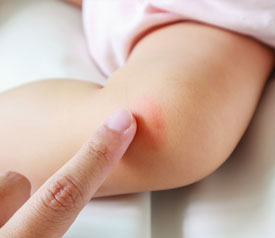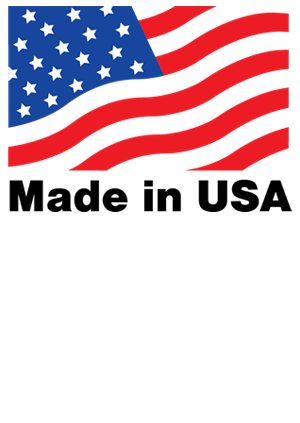
An unfortunate reality of medical adhesives is the number of allergic reactions experienced by patients. Many medical adhesives feature a variety of ingredients to hold bandages in place. However, some of these chemicals, such as latex, cause allergic reactions to the skin and respiratory system.
Whether a patient or caregiver, it’s important to know the signs of an allergic reaction and how to heal quickly. Here, we’ll discuss the signs of allergies due to medical adhesives, the best treatments available, and how products like Hy-Tape can help patients avoid these issues altogether.
Signs of an Allergic Reaction
An allergic reaction to a medical adhesive can manifest in a variety of ways. Most commonly, two types of allergic reactions may occur:
- Contact dermatitis: This allergic reaction involves irritation of the skin. Elements of the medical adhesive may cause a reaction in the skin upon contact. The skin may become itchy, cracked, blistered, or hived. The reaction typically doesn’t occur immediately upon contact but within a few hours or even minutes is possible.
- Respiratory issues: While much less common, a medical adhesive applied to the skin could lead to breathing issues. The adhesive’s chemicals can seep into the skin and trigger allergic reactions that affect the lungs or nose, leading to breathing issues for the patient. These issues can range from light discomfort while breathing to the inability to take a breath.
No matter the type of allergic reaction, it’s vital to act quickly when contact dermatitis or breathing issues arise. Remove the adhesive and clean the skin as best as possible without damaging the wound underneath. Taking an antihistamine drug can help combat allergic reactions, too.
If the skin stays irritated or the patient’s breathing doesn’t improve, more treatment may be needed. A trip to an urgent care facility or an emergency room may be necessary.
Avoiding Allergic Reactions to Medical Adhesives
Many patients find themselves dealing with rashes or breathing issues due to medical adhesives. On the plus side, there are several ways to avoid allergic reactions from medical adhesives when bandaging is necessary. Here are a few options:
- Replace bandages more often: Removing and applying new bandages and adhesives can be helpful in the long run. If the doctor finds it safe for the healing of the wound, changing bandages as often as possible allows patients to clean the skin more often and remove any adhesive residue that could be causing a reaction.
- Use adhesive-free bandaging tape: Some bandages come in an adhesive-free style. These bandages hold tightly through pressure rather than adhesive, staying in place without exposing the skin to any adhesive. This can be a great solution for those who suffer from sensitive skin in an area where they need a bandage.
- Use custom-made bandaging tape: If allergic reactions are severe, a doctor may be able to order custom bandages that don’t feature the specific elements that cause an allergic reaction in the patient. This ensures that the patient will not be exposed to the materials that irritate their skin.
- Use hypoallergenic bandaging tape: Some medical tapes are designed specifically with hypoallergenic materials. These materials are designed to avoid causing rashes, hives, or other allergic reactions.
- Use skin preparation barriers: Certain creams and chemicals can be applied to the skin to protect it against the adhesives in the medical tape. This does not work with all tapes, however, such as Hy-Tape.
With the right type of medical adhesive tape, patients with allergies can keep bandages in place without the risk of allergic reactions. This can help avoid irritation to the skin as well as speed up the healing process for the wound.
How Hy-Tape Can Help
Hy-Tape can be a great solution to the problem of allergic reactions brought on by medical adhesives. The product is made with no latex, a common ingredient of adhesives that causes allergic reactions in patients. It also features zinc oxide which acts as a skin protectant, making skin preparation barriers unnecessary.
In addition, Hy-Tape is designed to be flexible, moving easily with the movements of a patient. It’s also waterproof, helping to keep water and other debris away from the wound. When bandaging needs to be changed, Hy-Tape peels away easily without causing damage to the skin.
Whether you or your patients suffer from allergic reactions from medical adhesives or not, Hy-Tape is an excellent solution for holding bandages in place. Contact us now to learn more about our line of products and place an order. Click here to order a sample of Hy-Tape

